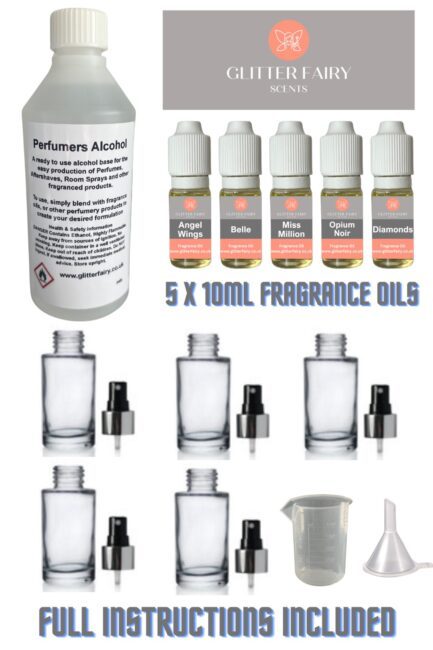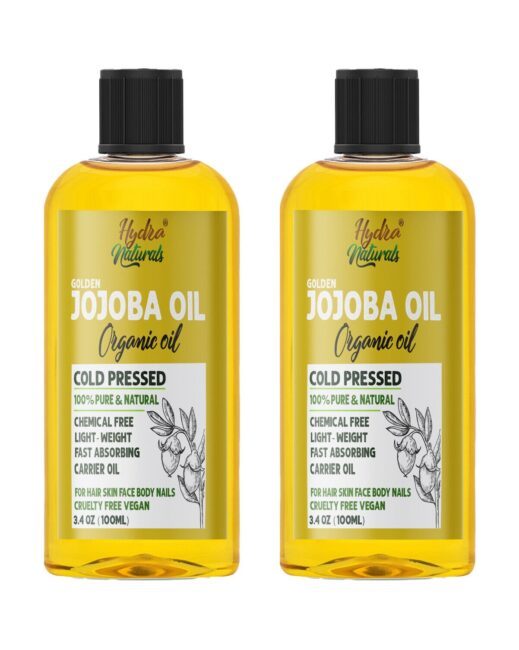Make Natural Perfume At Home
Making your natural perfume isn’t just a fun and creative outlet. Homemade perfumes can be incredibly advantageous. One major perk is avoiding the harmful chemicals often found in commercial products. Many store-bought perfumes contain synthetic fragrances and preservatives, which can cause allergies or skin irritations. Crafting your fragrance lets you use pure, natural ingredients that are gentler on the skin and better for your overall health.

This article is part of a fragrance blog I built myself — I’ll explain how at the end if you’re curious.
Creating your perfume can often be more cost-effective than purchasing high-end brands. High-quality commercial perfumes come with a hefty price tag, primarily because of the costs of marketing, packaging, and branding. You cut out these expenses by making your own and paying only for the raw materials. Plus, you can control the quality and quantity of the ingredients, ensuring you’re not overpaying for a fancy bottle.
Another fantastic reason for making your perfume is customisation. When you create your scent, it’s unique to you. You can mix and match different essential oils and fragrance notes until you get something that perfectly represents your style and personality. It becomes a personal signature scent, something a store-bought perfume can’t offer.
Homemade perfumes are also a great way to be environmentally conscious. Commercial perfume production requires significant resources and energy, as well as substantial packaging waste. When you make your own, you can use sustainable, eco-friendly ingredients and reuse or recycle old perfume bottles. It’s a small step, but every bit helps reduce our environmental footprint.
Related Article: Reusing Candle Jars

Lastly, creating your natural perfume can be a unique and rewarding hobby. It combines art and science, and there’s a unique joy in crafting something personal and beautiful. It’s a hobby that grows with you, adapting and evolving as your tastes change. Plus, it makes a thoughtful, personalised gift for friends and family, showing them how much you care.
The Process of Creating Your Natural Perfume
Embarking on your perfume-making journey is easier than you might think. First, gather the basic ingredients: essential oils, carrier oil or alcohol, distilled water, and a storage bottle. Essential oils are the key to your fragrance; you can experiment with endless combinations. The carrier oil or alcohol helps to dilute and preserve the scent.
Start by choosing your essential oils. Consider the scent you desire, whether it’s floral, citrus, woody, or spicy. Utilise top, middle, and base notes to create a well-rounded fragrance. Top notes are the first scents you smell; middle notes define the perfume’s heart, and base notes linger the longest. Some popular choices include lavender, bergamot, sandalwood, and vanilla.
Luxury Perfume-Making Starter Kit
Related Article: Signature Fragrances
Now, onto the blending. Begin with a small test batch to see how the oils work together. A good starting ratio is 30% top notes, 50% middle notes, and 20% base notes. Mix the essential oils with your chosen carrier, stirring gently. For a more aromatic scent, use alcohol, such as vodka. If you want something more moisturising, opt for a carrier oil, like jojoba.
Once you’re happy with your blend, let it sit for a few days to allow the scents to marry and develop into a harmonious fragrance. After the resting period, add distilled water to achieve your desired concentration. Aim for a concentration of about 15-30% essential oil in a perfume.
Finally, transfer your concoction to a dark-coloured storage bottle to protect the perfume from light. Store it in a cool, dry place to prolong its shelf life. As you get more comfortable with the process, don’t hesitate to tweak and refine your formulas. The beauty of making your perfume is that there are no strict rules – it’s all about personal preference and creativity.
Related Article: Alcohol Free Perfume For Women
Legal and Practical Considerations for Homemade Perfume
If you’re considering selling homemade perfumes, it’s essential to be aware of the relevant regulations. Different countries have rules regarding cosmetics and skincare, including perfume, so it’s vital to research local laws. These regulations typically ensure that products are safe for consumers to use. Getting ingredients checked and approved might seem tedious, but it’s an essential step to avoid legal complications.
Quality control is another critical aspect. You want to consistently produce high-quality perfumes that are safe and enjoyable to use. Doing so means carefully measuring ingredients, keeping detailed records of your blends, and conducting patch tests to avoid allergic reactions. Investing in good-quality essential oils and carriers also makes a big difference.
You might wonder why everyone isn’t creating their own perfumes. While the process is straightforward, it requires patience, practice, and some trial and error. Not everyone has the time or interest to invest in this kind of hobby, and some prefer the convenience of store-bought options. Creating a balanced, pleasing scent can also be challenging and might require some experimentation.
For those looking to take perfume-making seriously, remember the potential challenges. It can be challenging to source consistent, high-quality ingredients, and the initial costs for supplies can be substantial. Additionally, mastering the nuances of fragrance blending requires time. However, there are numerous resources available, ranging from online tutorials to community groups, that can provide guidance and support.
The journey of crafting your perfume is as rewarding as it is complex. Taking the time to learn, practice, and experiment can lead to creating a product that’s not unique but also reflects your personality. Additionally, you gain the satisfaction of knowing exactly what’s in your fragrance and the joy of sharing your creations with others.
How This Blog Was Created
Fragrances With Love started as a personal hobby — sharing my love of perfume, affordable finds, and fragrance trends. I didn’t start with a background in websites, marketing, or blogging.
This site was built by writing about something I genuinely enjoy. I use one platform to host my website, write my blog posts, and learn how to monetise content step by step, all in one place.
If you enjoy writing and have ever thought about starting a blog around something you love, you can see the platform I used to create this site below.
How I Created Fragrances With Love
Related Article: Life Without Perfume
Create Your Natural Perfume!
Do you want to avoid the chemicals in commercial perfumes and opt for a healthier, more natural fragrance? Making your perfume is the perfect solution! Not only is it a fun and creative outlet, but it also allows you to use pure ingredients that are gentler on your skin and better for your overall well-being. Additionally, it can be significantly more affordable than purchasing luxury brands.
Sign up for our newsletter to discover tips, recipes, and inspiration for crafting your natural scents. Let’s take control of what we wear—naturally!



